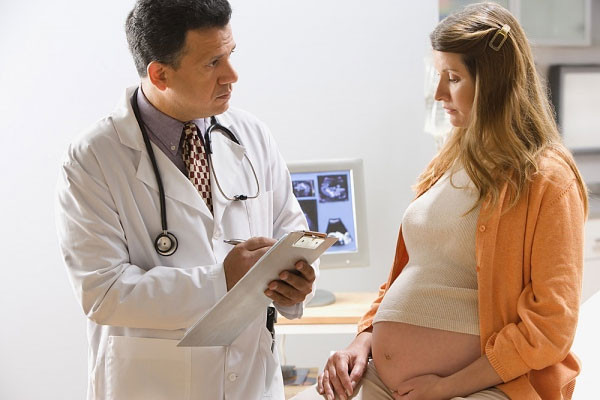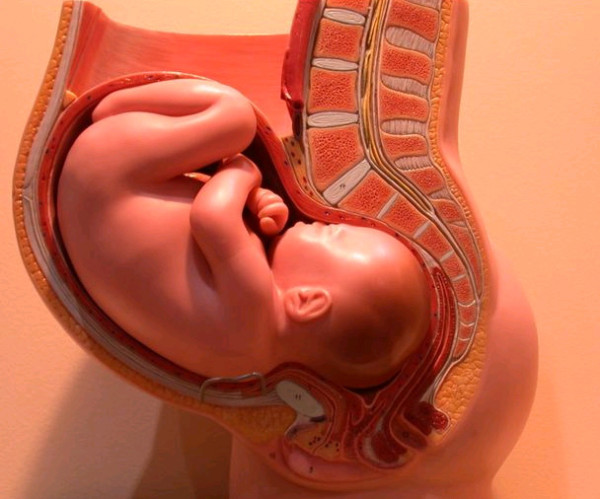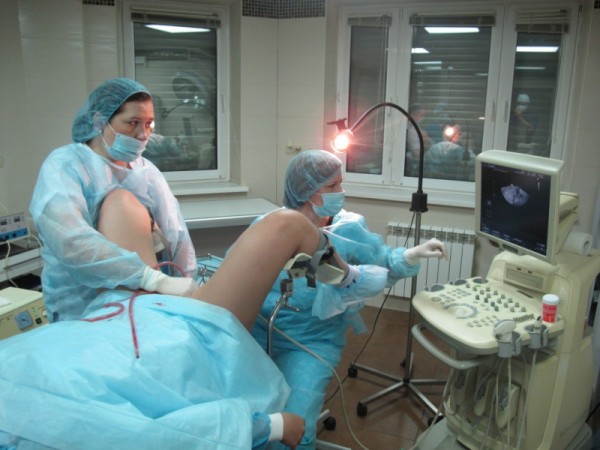These things cause miscarriage - be careful!
Sad statistics say that every fifth pregnancy before 20 weeks ends in spontaneous miscarriage. Of course, for every woman, this becomes a serious blow to health and mental state. In order to quickly make up for the loss, many are in a hurry to start again trying to conceive a baby. However, this is fundamentally wrong. If in the future you want to reduce the risk of miscarriage to a minimum, you should contact a specialist, take the necessary tests and identify the cause of miscarriage.
Content
Genetic predisposition
For a period of up to 6 weeks, the main cause of miscarriage is genetic malfunctions, which are hereditary. The fact is that in the first trimester pregnancy all the main organs of the fetus and the most important systems are laid, and if at this time a chromosomal mutation occurs (a change in the structure of the chromosomes of the parents), the uterus will simply reject the weak, non-viable fetus.
Most often, these violations are accidental, there is a kind of malfunction in the functioning of the well-established body system, and subsequent pregnancies proceed normally. Even seemingly not so significant external factors can affect the course of events, including a banal cold, the influence of a virus, bad habits. 
Hormonal Disorders
Spontaneous abortion or missed pregnancy at 6-12 weeks is often due to endocrine system disorders.
During pregnancy, a woman's body undergoes a powerful hormonal change, some glands begin to produce more hormones necessary for fetal development, others temporarily lose their activity. An imbalance in thyroid hormones, a lack of progesterone, or an excess of androgens and adrenal hormones can become a big obstacle to conceiving a baby, but if pregnancy does occur, without the necessary therapeutic support, the likelihood of miscarriage is very high.
Progesterone is a specific hormone that is first produced by the corpus luteum, and after the second trimester by the placenta, throughout gestation, its level should grow steadily, and decrease only just before childbirth. Already in the first weeks, a deficiency of progesterone can lead to rejection of the ovum and miscarriage.
To avoid the sad consequences, it is necessary to regularly take an analysis for hormones and, if it is deficient, replenish it with the help of synthetic analogs ("Utrozhestan", "Duphaston"). A specialist prescribes appropriate hormone therapy if a woman's history already has an early miscarriage. 
Weak immunity
Weak immunity and low resistance of a woman's body to viruses and infections significantly increases the risk of spontaneous abortion at any time.
Pregnancy is a period when the protective barriers of the expectant mother weaken, she becomes more susceptible to colds and viral diseases, which cannot but affect the normal development of the child. What factors can influence this?
- Due to the restructuring of the hormonal background, the woman feels weakness, nausea, dizziness and general malaise.
- If before conception you liked to pamper yourself with chips and soda, alcohol, had bad habits, then it's no wonder that problems may arise during the gestation period.
- Bad mood, stress, large volumes of work, constant worries about the health of the crumbs also undermine the immune system.
- Disorders of the gastrointestinal tract, which affect the general condition.
- Sedentary lifestyle, lack of walking and fresh air.
- Vitamin deficiency and trace elements.
- Negative ecological situation.
To maintain immunity, expectant mothers are advised to:
- Maintain cleanliness in the apartment and regularly ventilate the room.
- Be in the fresh air as much as possible and do simple exercises.
- Do not contact sick people and avoid large crowds of people.
- Lean on fresh fruits, vegetables, juices, and fiber-rich foods.
- Massages, vaccinations and other health-improving activities should only be performed with the permission of the supervising doctor.

Sexually transmitted infections
Some women do not even know about the presence of dangerous sexually transmitted infections in their body, because some of them are almost asymptomatic, and this is chlamydia, herpes of the second type, gonorrhea, vaginosis, thrush.
It is quite difficult to eliminate the ailment during gestation, because most drugs can harm even more to kid therefore, treatment is often started after 12 or even 22 weeks of pregnancy. Until that time, the pathogen already affects the health of the mother and the fetus, which is why it is so important to observe preventive measures and be examined even during the planning of the baby.
Consequences of infection with sexually transmitted infections:
- at a time when a woman does not yet know about the birth of a new life, STDs can penetrate the amniotic fluid or amniotic fluid and cause fetal malformations;
- leads to complications during pregnancy - miscarriage, shortening of the cervix, polyhydramnios, etc.
- the baby can become infected while passing through the birth canal and during lactation.

Inflammatory processes
Any ailments associated with signs of intoxication of the body (significant fever, chills) are dangerous for the mother and fetus and can cause miscarriage, especially in the first trimester. The leading positions in this list are occupied by chickenpox, rubella, influenza, tonsillitis, appendicitis, in case of complications, the spread of infection inevitably causes rejection of the embryo, which is why even during the planning period, you should undergo a full examination.
Inflammation in the genital area can lead to infection of the fetus and the formation of various defects in the early stages, intrauterine growth retardation - at a later date.
In childbirth, problems also often arise - premature outpouring of water, weak labor, polyhydramnios. 
Previous abortions
Medical and surgical abortion is a biological trauma for the female body, moreover, the duration of pregnancy does not matter here.
Consider the main consequences and complications of the abortive method of getting rid of unwanted pregnancy:
- The structure of the uterus itself is quite soft and can easily be damaged with metal instruments, sometimes after an abortion, urgent removal is required.
- Uterine bleeding after surgery is also not uncommon, in some cases a blood transfusion is required.
- No one can say for sure how a woman will undergo anesthesia, the introduction of anesthesia leads to both organ dysfunction and allergic reactions.
- In the first days after surgery, there is a high probability of developing inflammation in the uterus, abdominal cavity and fallopian tubes.
- Often, after an abortion, there is a partial or complete obstruction of the fallopian tubes, and as a result, infertility.
- Mechanical damage to the uterus does not pass without leaving a trace, the cervix can be shortened, which negatively affects subsequent pregnancies.

Herbs and medicines
During the period of carrying a baby, expectant mothers feel that the body's resistance to infections and viruses is noticeably reduced. Since many medications are strictly prohibited at this time, women are trying to strengthen their immunity with the help of folk recipes - teas and infusions from natural herbs. But this is a big mistake, because taking some of them can cause miscarriage or premature birth, affect the nervous system and the development of the fetus.
In the first trimester, it is better to avoid herbal treatment altogether, if there is an urgent need for it, take in small doses. Even a seemingly harmless plant, parsley, acts on the muscles of the uterus, as a result of which it contracts, an undesirable tone arises. Wormwood and sage cause bleeding and negatively affect the psyche.
There are not so many herbs and plants that are indicated during pregnancy. Treatment with an infusion of birch buds is allowed, it has an anti-inflammatory effect and replenishes the volume of fluid in the body, which is indispensable for toxicosis.
Valerian root and motherwort herb are some of the safest sedatives, soothe and help during the period of hormonal surge.
As for medications, you need to consider the situation as a whole and always consult with your doctor before taking them. Here are some of the remedies allowed during the period of bearing a child:
- "Papaverine" is the safest method of pain relief, as it does not have a toxic effect;
- the first aid for high blood pressure is the drug "Nifedipine";
- "Paracetamol" is dangerous in the first two trimesters, when all the organs of the fetus are laid, it is allowed to be taken in the third trimester;
- with a pronounced allergic reaction, syrup or Erius tablets are often prescribed;
- plant-based syrups - "Doctor MOM", "Mukaltin" will save you from cough and sore throat.

Nerves and stress
Sometimes a pregnant woman does not even pay attention that she is in a state of constant stress. Signs of stress can include: insomnia, apathy, dizziness, irritability, lack of appetite, decreased immunity.
To avoid the dire consequences of an unstable psycho-emotional state, pregnant woman, her relatives and the attending physician should monitor the implementation of simple rules:
- Tune yourself only to a positive outcome of events, learn to control bad, scary thoughts, this is just a figment of your imagination. If you can't get distracted, be sure to seek help from a psychologist or psychotherapist.
- Don't keep everything to yourself. Share your experiences with loved ones.
- Walk outside regularly and ventilate rooms.
- Get more rest, find a hobby or activity that is fun and relaxing.


